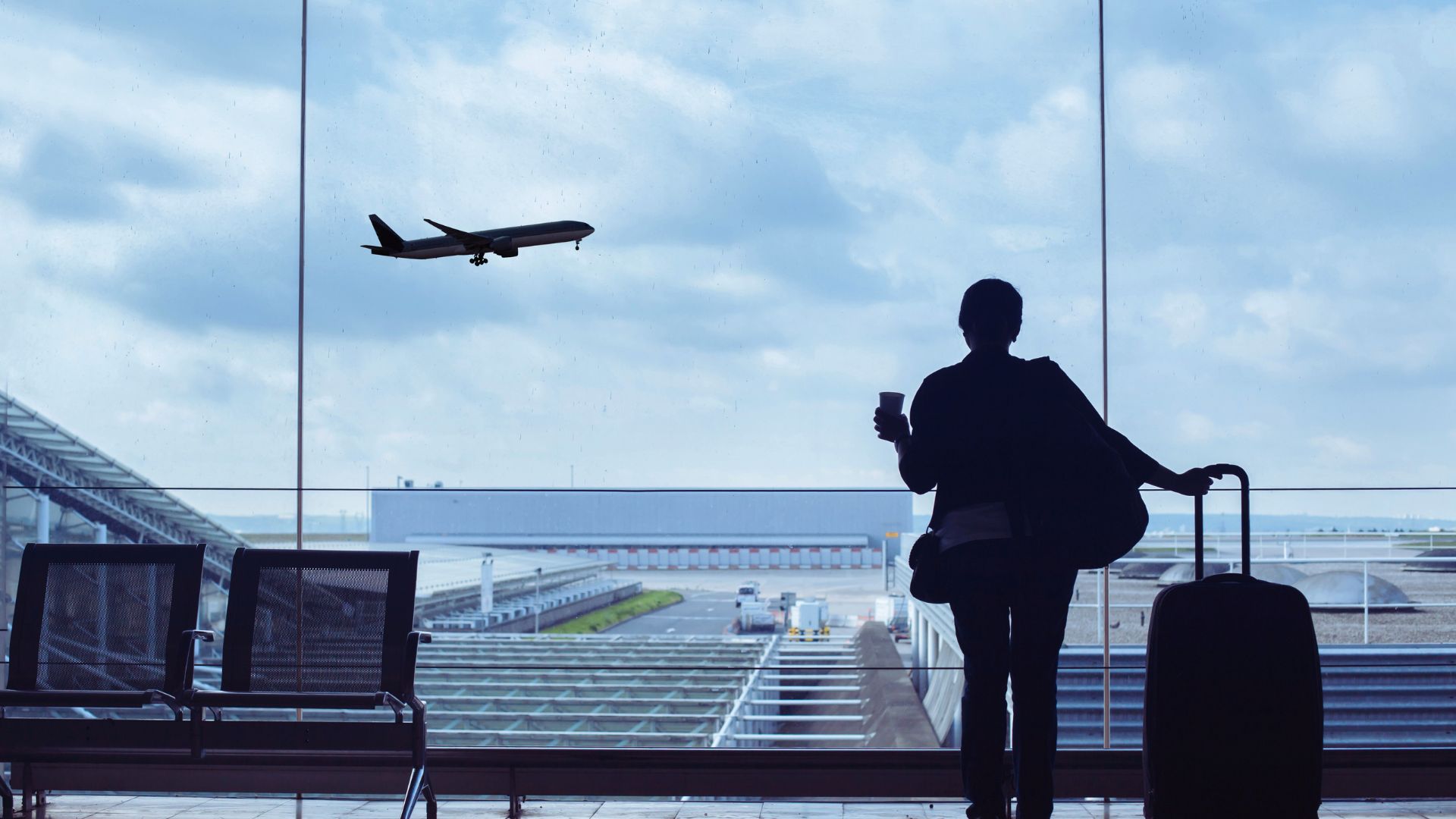How to Maintain Healthy Habits While Traveling: Tips for Staying Fit on the Go
Traveling can disrupt routines, making it challenging to maintain healthy habits. To sustain a healthy lifestyle while on the go, it’s essential to prioritize nutrition, physical activity, and self-care. With a bit of planning and awareness, it’s possible to enjoy new experiences without compromising health goals.
Exploring new destinations often leads to indulgent foods and a sedentary lifestyle, but mindful choices can keep fitness on track. Simple strategies like packing healthy snacks, seeking out local markets, and scheduling time for exercise can transform a travel experience. Staying active doesn’t mean sticking to a gym; walking tours and outdoor activities can easily replace traditional workouts.
Adopting a healthy mindset while traveling lays the foundation for a rewarding journey. By incorporating these habits, travelers can enjoy their adventures without sacrificing their well-being, fostering both physical health and a positive outlook.
Prioritizing Nutrition On The Go
Maintaining proper nutrition while traveling requires thoughtful choices. With limited time and varying food environments, selecting healthy options becomes essential for well-being.
Choosing Healthy Food Options
When examining food options, travelers should prioritize meals with whole ingredients. Look for dishes featuring lean proteins, whole grains, and a variety of colorful vegetables. These elements provide essential nutrients that support energy levels and digestion.
In restaurants, opting for grilled, baked, or steamed preparations can be healthier than fried alternatives. Additionally, many local cuisines offer nutritious options that utilize fresh produce and herbs. Familiarizing oneself with local specialties can yield surprising and beneficial choices, fostering exploration while satisfying nutritional needs.
Incorporating Fruits and Vegetables
Fruits and vegetables should form a core part of any travel diet. These foods are rich in vitamins, minerals, and fiber, which help maintain digestive health during travel. Snack on portable options like apples, bananas, or carrot sticks for quick energy.
When dining out, travelers can ask for extra vegetables in salads or as side dishes. Choosing meals that incorporate local fruits can enhance the experience while providing necessary nutrients. Keeping an eye out for seasonal produce can lead to fresher and more flavorful options.
Selecting Healthy Snacks
Healthy snacks serve as a practical way to prevent hunger between meals. Travelers should aim for options that include a balance of protein, healthy fats, and fiber. Nuts, yogurt, and whole-grain bars are excellent choices that provide sustained energy.
Pack snacks in advance to avoid unhealthy impulse buys at airports or convenience stores. Furthermore, choosing snacks that are low in added sugars and sodium can help maintain overall health. Reading labels and being mindful of portion sizes contributes to better choices while on the move.
Maintaining Hydration And Energy Levels
Travel can disrupt regular routines, making it essential to prioritize hydration and energy intake. Staying hydrated aids the immune system and helps maintain energy levels throughout the journey.
Staying Hydrated While Traveling
Travelers should aim to drink plenty of fluids throughout the day, especially during long flights or drives. Water is the best choice, but convenient options like bottled water can also work well.
To stay on track, individuals can carry a reusable water bottle. This encourages frequent refills and helps reduce waste. Aim for at least 8 ounces of water every hour, or more if in a hot climate or engaging in physical activities.
Avoiding Dehydration
Dehydration can lead to fatigue, headaches, and weakened immunity. To avoid this, travelers must be proactive. Signs of dehydration include dry skin, dizziness, and dark urine.
A general rule is to monitor fluid intake, especially when consuming alcohol or caffeine, as these can contribute to dehydration. Incorporating hydrating foods like fruits and vegetables can also be beneficial. Watermelon, cucumbers, and oranges have high water content and can help supplement hydration needs.
Making Smart Beverage Choices
When selecting beverages, consider options that provide hydration without compromising health. Water should be the primary choice, but herbal teas and coconut water can also be excellent alternatives.
Travelers should be cautious with sugary drinks, as they may lead to energy crashes. Instead of soda, opting for flavored waters can satisfy taste preferences without added sugars. Additionally, avoiding excessive caffeine can help maintain consistent energy levels.
Overall, making informed choices and maintaining water intake can greatly enhance travel experiences.
Adapting Your Routine For Healthy Travel
Travel can disrupt regular habits, but simple strategies can help maintain a healthy lifestyle. By focusing on physical activity, managing sleep, and incorporating mindfulness, travelers can adapt their routines effectively.
Staying Active On The Road
Finding ways to stay active while traveling is essential. Many hotels offer gym facilities or swimming pools, which can be utilized for workouts. Even without formal equipment, bodyweight exercises like push-ups, squats, and lunges can be effective.
Walking or biking can also enhance travel experiences. Opt for destinations that encourage exploration on foot. Utilize local parks or scenic routes for jogging. Consider joining local fitness classes or groups to engage with the community, which can provide both exercise and social interaction.
Managing Sleep Schedule And Jet Lag
Traveling across time zones can disrupt sleep patterns, leading to jet lag. To combat this, adjust the sleep schedule ahead of time. Gradually shift bedtime by 15-30 minutes in the days leading up to travel.
During flights, use sleep masks and noise-canceling headphones to enhance rest. Staying hydrated and minimizing caffeine intake helps as well. Upon arrival, exposure to natural light can synchronize the body’s circadian rhythm. Practicing relaxation techniques can also aid in obtaining better sleep during trips.
Practicing Mindfulness And Self-Care
Incorporating mindfulness into travel can enhance well-being. Simple practices like deep breathing exercises or meditation can be performed at any destination. Setting aside time each day for these activities fosters mental clarity and reduces stress.
Travelers should also prioritize self-care by maintaining a balanced diet, using skin protection, and seeking downtime when needed. Journaling experiences or maintaining a gratitude list can further enhance mindfulness and positivity while on the road. These practices can transform travel into a fulfilling, healthy experience.
Additional Strategies For A Healthy Lifestyle Away From Home
Maintaining a healthy lifestyle while traveling requires special attention to certain factors that can impact well-being. Strengthening the immune system and considering travel insurance are crucial for sustaining health during trips.
Boosting Immune System Health
Traveling often exposes individuals to unfamiliar environments, which can challenge their immune systems. To fortify immunity, travelers should focus on various strategies:
- Hydration: Drink plenty of water before, during, and after travel to keep the body hydrated.
- Nutrition: Incorporate a balanced diet rich in fruits, vegetables, and whole grains to provide essential vitamins and minerals. Foods high in vitamin C, such as oranges and bell peppers, are particularly beneficial.
- Sleep: Prioritize adequate sleep to allow the body to recover and regenerate. Aim for seven to nine hours each night, adjusting for time zone differences when necessary.
- Hand Hygiene: Frequent handwashing and using hand sanitizer can help reduce germ exposure, especially in crowded areas like airports.
These practices support the immune system, making it more resilient during travel.
Considering Travel Insurance
Travel insurance is an important component of a healthy travel plan. It can protect against unforeseen events that may impact health or finances. Key points to consider include:
- Medical Coverage: Ensure that the insurance policy covers medical expenses, including emergencies, illness, and injuries while abroad.
- Trip Cancellation: Look for policies that offer trip cancellation benefits, which can recoup costs if health issues arise before travel.
- Provider Network: Choose a plan with a wide network of healthcare providers in the destination, making it easier to access medical services.
- Emergency Assistance: This feature can help coordinate medical care and provide information about local health facilities.
Having comprehensive travel insurance safeguards against unexpected health-related issues and promotes peace of mind while traveling.



